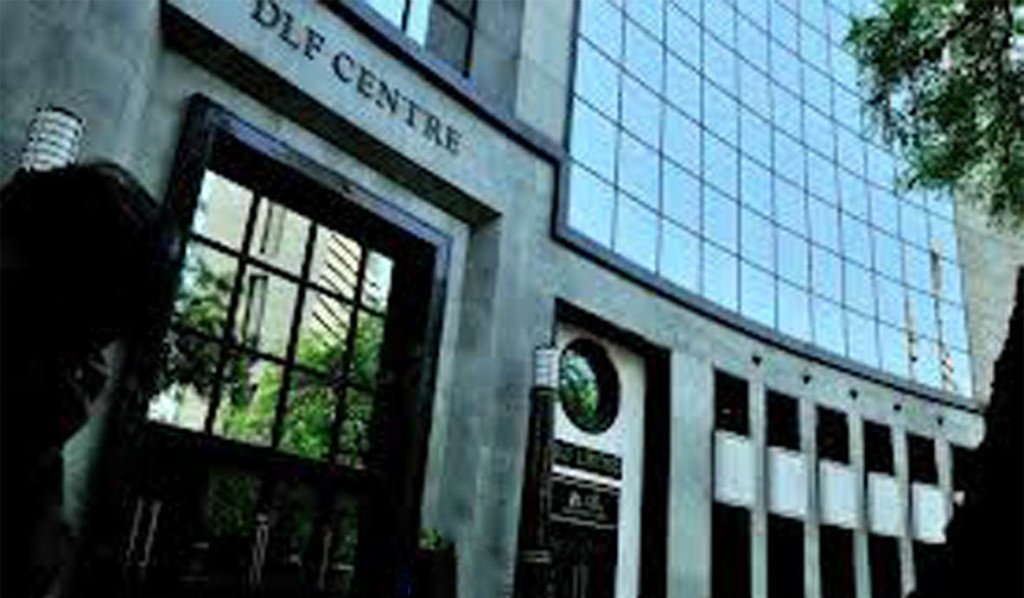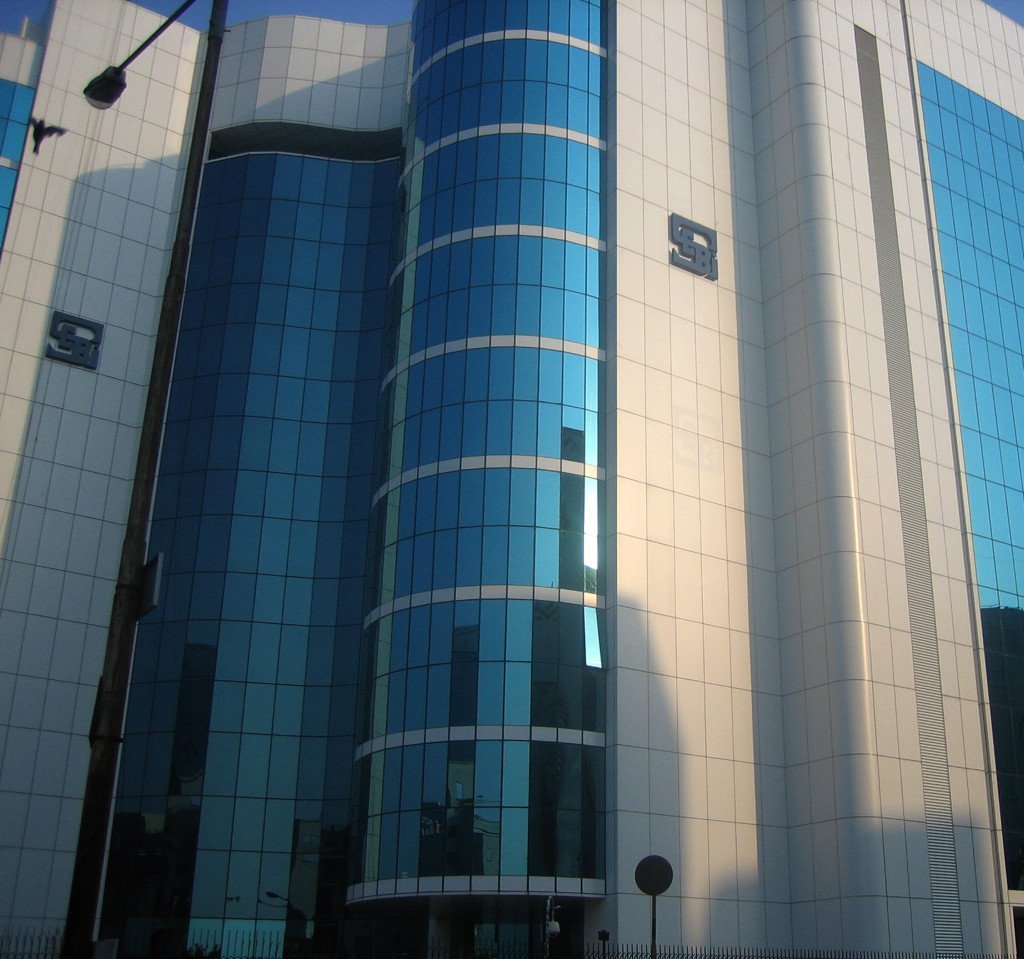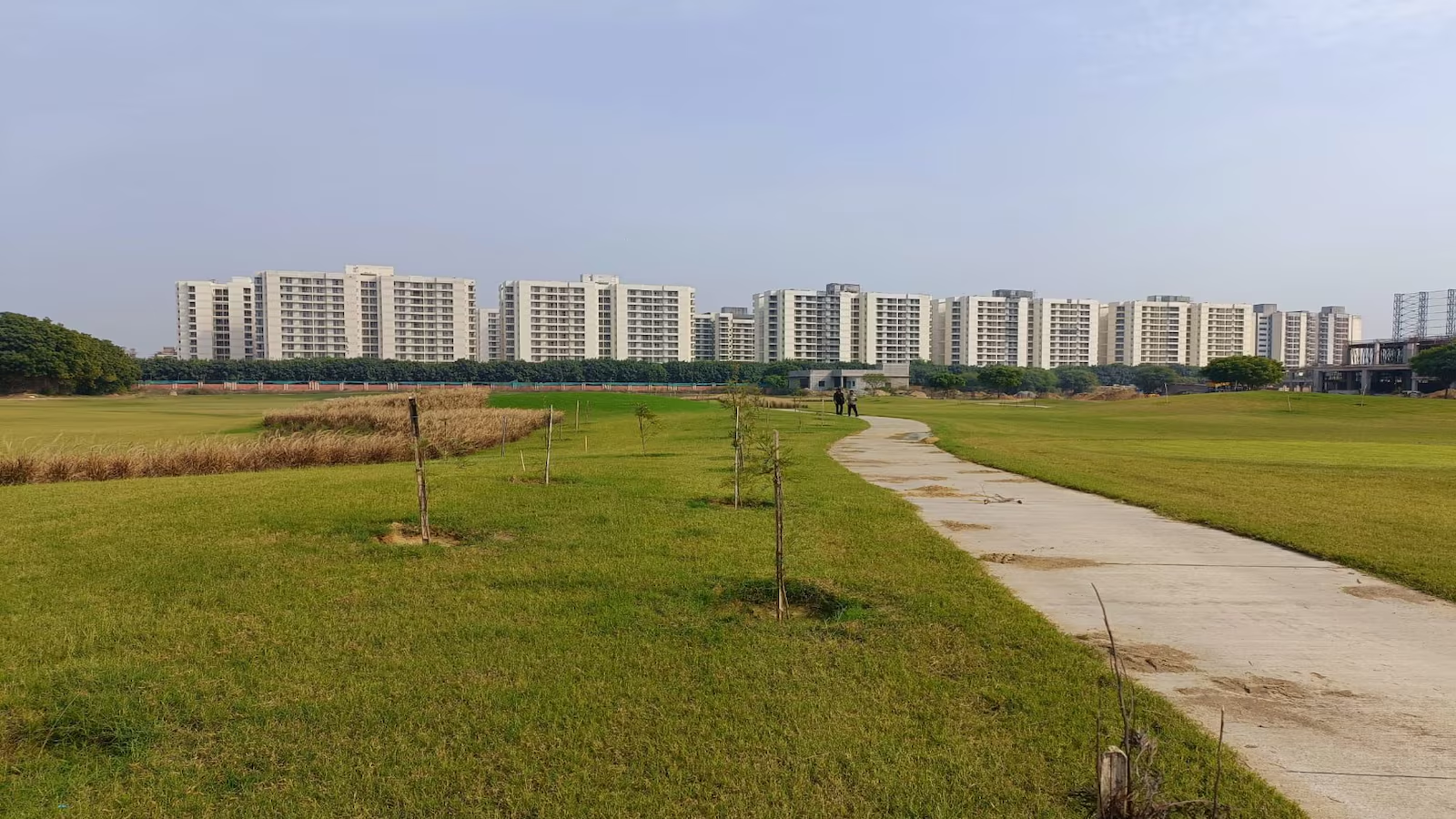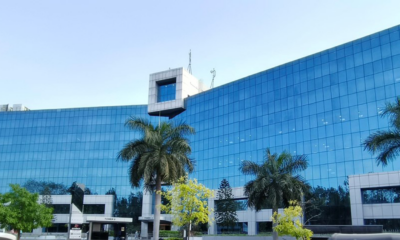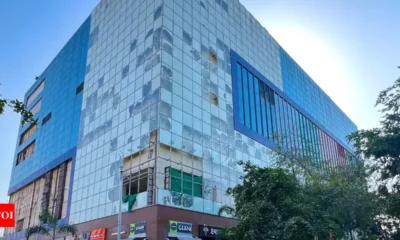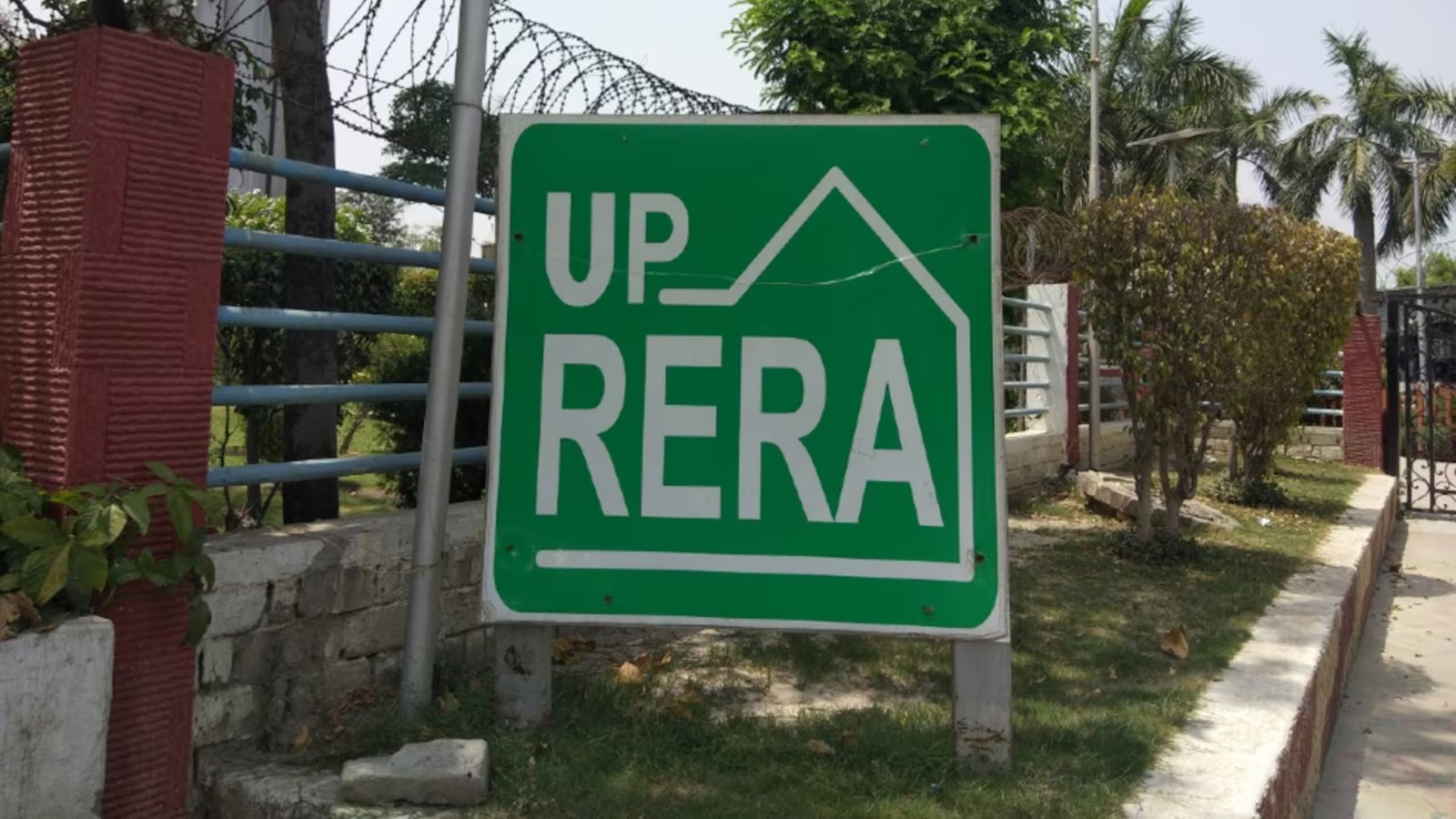News
GIANT IN DISTRESS


The times are definitely not being too kind on the real estate giant. A hard hitting double whammy-one delivered by Supreme Court and the other by the stock market regulator- has the country’s biggest realty player DLF writhing in pain even as it stares at a tremulous future. Sparking concerns about the ability of the realtor to fund projects and repay loans, the implications of these developments for the realty sector in general and the National Capital Region in particular are immense
October the Thirteenth was ill-fated for the country’s biggest realty player DLF Ltd. It was the day an October 10 order uploaded on the Securities and Exchange Board of India (Sebi) website well after trading hours on October 13 barred the company as well as six of its top executives, including the Chairman and main promoter KP Singh, from the securities market for three years for “active and deliberate suppression” of material information at the time of its IPO.
In his 43-page order, Sebi’s Whole-time Member Rajeev Agarwal said that the “violations are grave and have larger implications on safety and integrity of the securities market”.
Expectedly enough, the company’s shares tanked over 28 per cent when the markets reopened on October 14.
The more-than-four-year-long Sebi probe found that a “case of active and deliberate suppression of any material information so as to mislead and defraud the investors in the securities market in connection with the issue of shares of DLF in its IPO is clearly made out in this case.”
It was a double whammy, for, two months ago, the Supreme Court had ordered the company to pay a huge 630-crore fine imposed on it by the Competition Commission of India (CCI) for alleged unfair business practices.
Besides KP Singh, those barred from the markets included his son Rajiv Singh (Vice-Chairman), daughter Pia Singh (Whole-time Director), Managing Director TC Goyal, former CFO Ramesh Sanka and Kameshwar Swarup, who was Executive Director (Legal) at the time of the company’s public offer in 2007.
While Singh, his two children and Goyal are still on the board of DLF,Sanka is no more with the company.
While the regulator did not impose any monetary penalty, the restraining order would bar DLF and the six persons, from any sale, purchase or any other dealings in securities markets for a period of three years, including for raising funds.
Sebi said that all these six persons were part of top management at the time of filing IPO documents, wherein the company was accused of non-disclosure of certain dealings with three subsidiaries through “sham transactions”.
DLF is the largest real estate group in the country with a nearly 10,000 crore annual turnover and market capitalisation of over 26,000 crore. The company’s market cap had crossed one lakh crore mark soon after its listing in 2007,butfelllater. The Singh family and related entities are major promoters with 74.91 percent stake of DLF.
Big Implications
The massive plunge in DLF shares after the Sebi order has sparked concerns in some quarters about the ability of the realty major to fund projects and repay loans. A section of the analysts is of the view that the ruling could force DLF to lower property prices leading to an overall correction in the National Capital Region given the company’s market leadership in the region.
There is also a view that that the Sebi decision is unusually harsh because of the collateral fallout and possible disproportionately large cost to other stakeholders, especially people who have bought houses in DLF projects. Treating corporate entities and the promoters/executives alike means that the heavily-indebted DLF that needs funds to complete ongoing projects will not have any capital market access for three years. It cannot raise equity to pare down debt or raise more loan funds.
The likelihood of banks getting jittery rolling over debt or increasing their exposure to the company is also not ruled out. Minority shareholders holding company’s stock have already lost over 25 per cent of their value on the very day the DLF shares got a battering. Those who have bought houses in around 25 under-execution DLF projects could be the next in the list of losers, if there is a delay.
The latest Sebi ruling comes as a double whammy for the real estate developer which in August was ordered by the Supreme Court to pay 630 crore fine imposed on it by the CCI for alleged unfair business practices.
A Bench comprising Justices Ranjana Prakash Desai and NV Ramana had said in its interim order that DLF will have to submit an undertaking to pay 9 per cent interest on the penalty slapped on it by the anti-trust regulator in August 2011 that was later upheld in May this year by the Competition Appellate Tribunal. The apex court had asked the realtor to pay an initial amount of Rs50 crore and Rs25 crore in interest within three weeks.
- The more-than-four-year-long Sebi probe found that a “case of active and deliberate suppression of any material information so as to mislead and defraud the investors in the securities market in connection with the issue of shares of DLF in its IPO is clearly made out in this case”
- Besides KP Singh, those barred from the markets included his son Rajiv Singh (Vice-Chairman), daughter Pia Singh (Whole-time Director), Managing Director TC Goyal, former CFO Ramesh Sanka and Kameshwar Swarup, who was Executive Director (Legal) at the time of the company’s public offer in 2007
- DLF is the largest real estate group in the country with a nearly 210,000 crore annual turnover and market capitalisation of over 126,000 crow
- The massive plunge in DLF shares after the Sebi order has sparked concerns in some quarters about the ability of the realty major to fund projects and repay loans. A section of the analysts is of the view that the ruling could force DLF to lower property prices leading to an overall correction in the National Capital Region given the company’s market leadership in the region
- There is also a view that that the because decision is unusually harsh because of the collateral fallout ;nd possible disproportionately large cost to other stakeholders, especially people who have bought houses in DLF projects
- The latest Sebi ruling comes as a double whammy for the real state developer which in August was ordered by the Supreme Court to pay Rs630 crore fine imposed on it by e CCI for alleged unfair business practices
- The company and its top executives were found to have violated various regulations, including Sebi’s Disclosure and vector Protection (DIP) guidelines and the PFUTP (Prevention of Fraudulent and Unfair Trade Practices) norms
BANNED TRIO
Past Controversy
Significantly, about a year back also, DLF was dragged into a controversy when anti-graft activist and Aam Aadmi Party chief Arvind Kejriwal created a political storm by accusing Robert Vadra, son-in-law of Congress president Sonia Gandhi, of corruption. Kejriwal had alleged then that Vadra purchased at least 31 properties, mostly in New Delhi, worth more than Rs300 crore for which money had come from “unsecured interest-free loans from DLF Ltd”. Although both Vadra and DLF denied the allegations, the controversy resurfaced as recently as in the first week of October.
In the latest Sebi order, the company and its top executives were found to have violated various regulations, including Sebi’s Disclosure and Investor Protection (DIP) guidelines and the PFUTP (Prevention of Fraudulent and Unfair Trade Practices) norms.
The company is alleged to have executed a series of sham transactions to disown a subsidiary company accused of duping a person in a land transaction. Also, the company did not mention the FIR against its subsidiary and a key management person in this matter in the final prospectus filed with the Registrar of Companies.
According to the case details culled out from published media reports, in April 2007, one Kimsuk Krishna Sinha had filed an FIR against DLF subsidiary Sudipti Estates and Praveen Kumar, nephew of KP Singh, for duping him of Rs4 crore in a land transaction. Sudipti had only two shareholders, DLF Home Developers Ltd and DLF Estate Developers Ltd, both 100 per cent subsidiaries of DLF. The complainant wrote to Sebi on June 4,requesting that the listing of DLF shares be disallowed and immediate action be taken. DLF shares were listed on the stock exchanges on July 5, 2007 after the completion of the IPO process.
A week later,the company wrote to DLF denying any connection with Sudipti. Sudipti and two more subsidiaries of DLF- Shalika Estate Developers and Felicite Builders & Construction-were incorporated in March 2006. The shareholders in Shalika and Felicite were DLF Home Developers, DLF Estate Developers and DLF Retail Developers.
On November 29, 2006, the entire shareholding in Felicite held by DHDL, DEDL and DRDL was sold to Madhulika Basak, Niti Saxena and Padmaja Sanka. These three persons were wives of Surojit Basak, Joy Saxena and Ramesh Sanka, key management personnel of DLF. The following day the three DLF arms sold their 100 per cent stake in Shalika to Felicite,and the two DLF arms sold their entire stake in Sudipti to Shalika. This chain of transactions, ended DLF’s association with Felicite, at least on paper, and also made Sudipti a 100 percent arm of Felicite.
The Sebi report states: “Even after the sale of entire shareholding in Sudipti, Shalika and Felicite by the wholly-owned subsidiaries of DLF, there was no change in the composition of the Board of Directors of these three companies.” Also, the Sebi probe found that there was no change in any of the authorised signatories of the bank accounts of these three companies. Further, it found, there was no change in their registered office and statutory auditors
-



 News3 weeks ago
News3 weeks agoKW Delhi 6 Mall Onboards New Brands
-



 News4 weeks ago
News4 weeks agoManasum Senior Living Launches IKIGAI GOA, A Senior Living Community in North Goa, in collaboration with Prescon Homes
-



 News2 weeks ago
News2 weeks agoGodrej Properties Sells Rs 3k cr+ Homes of Godrej Zenith, Gurugram, within 3 days
-



 News4 weeks ago
News4 weeks agoBridging India Divide: Top 5 Tier- 2 Cities to Focus On
-



 News3 weeks ago
News3 weeks agoCommercial Realty Gets Tech Savvy: Fast Construction, Enhanced Convenience
-



 News4 weeks ago
News4 weeks agoMultipoint Connection – A Definite Boon
-



 News3 weeks ago
News3 weeks agoRBI’s Status Quo on Key Policy Rates to Help Maintain the Real Estate Growth Momentum, Say Industry Stalwarts
-



 News1 week ago
News1 week agoOlive Announces Dhruv Kalro as Co-Founder






